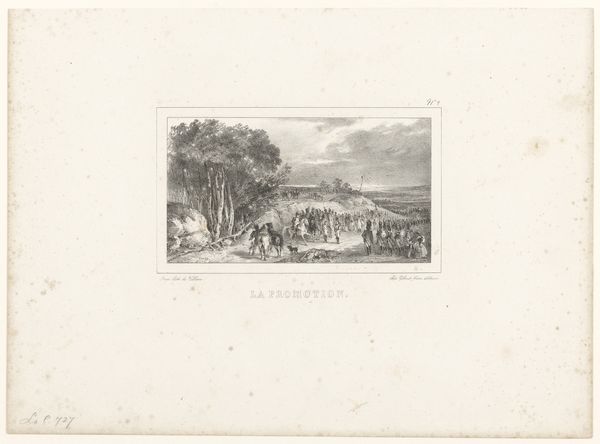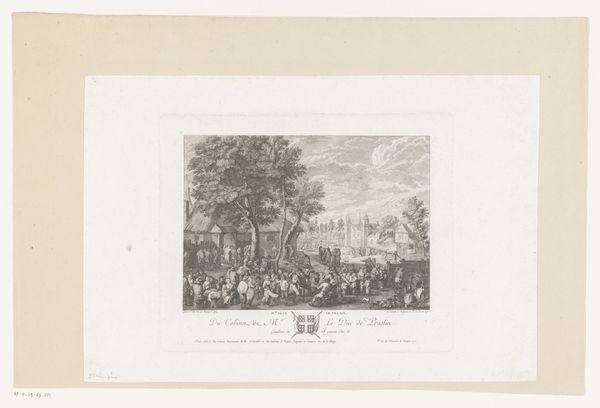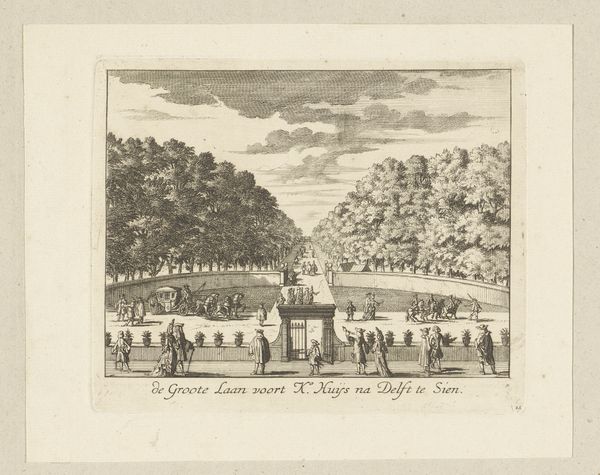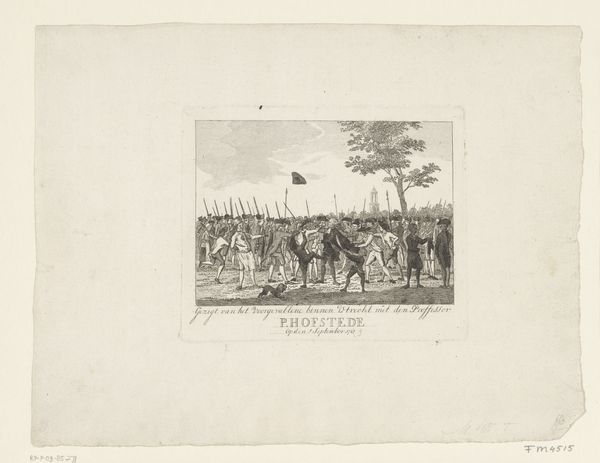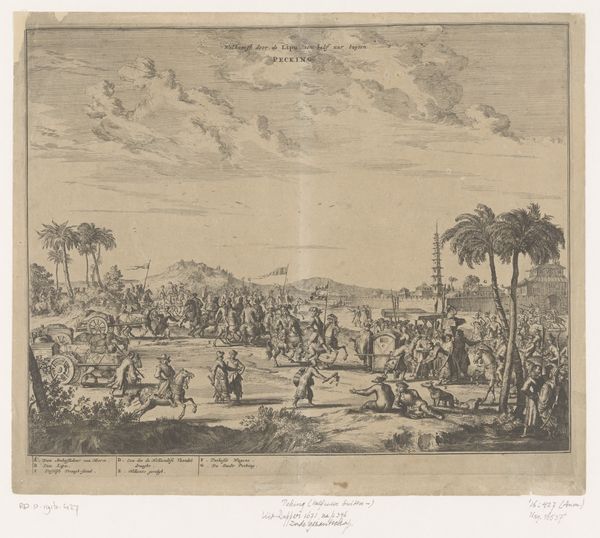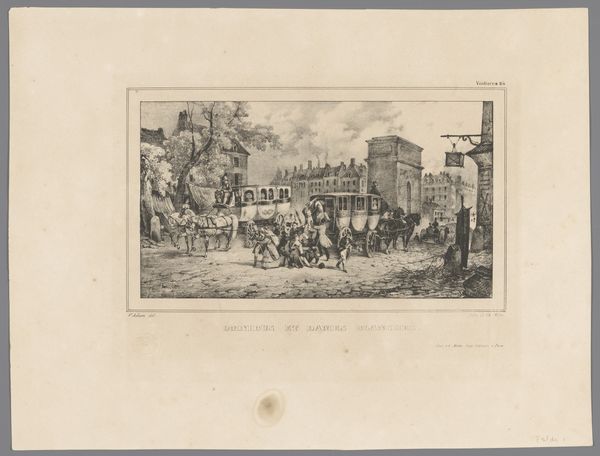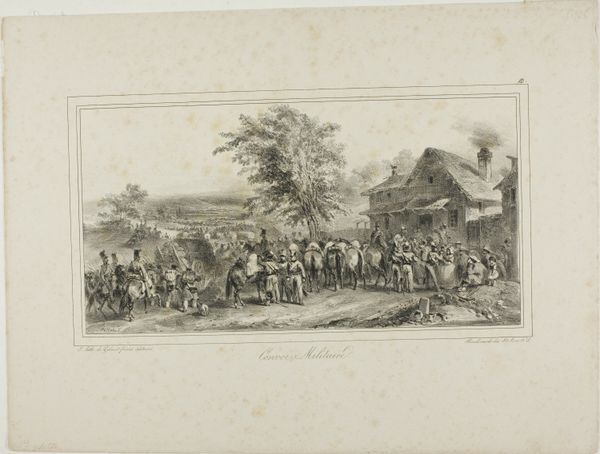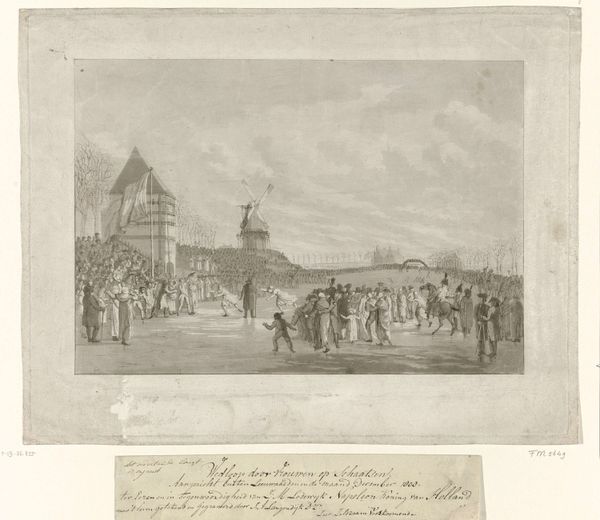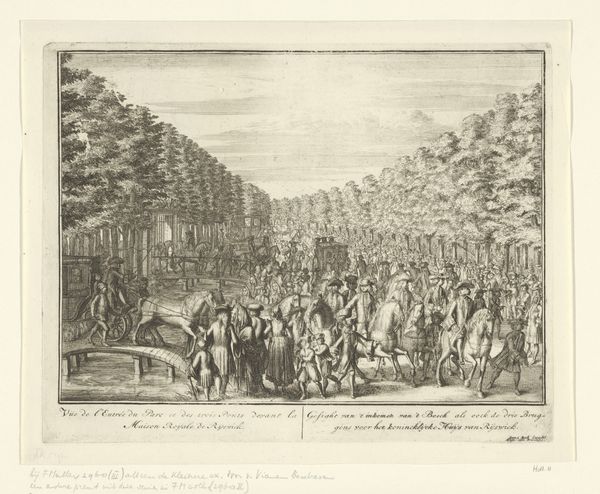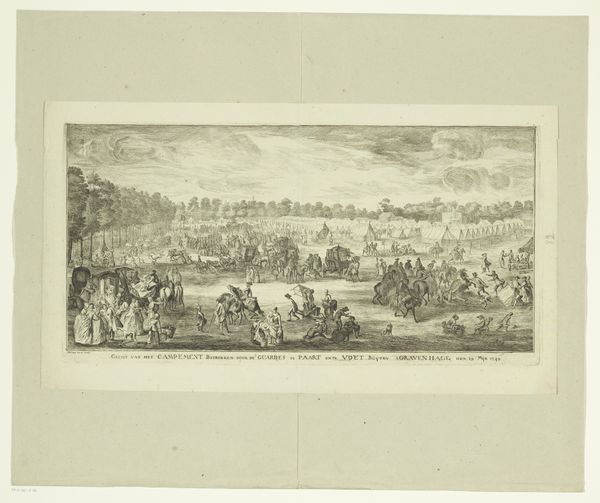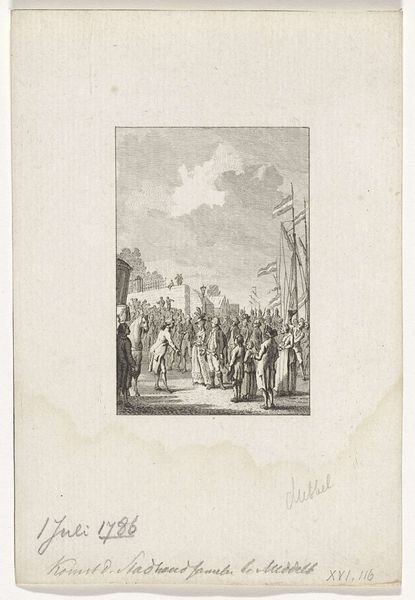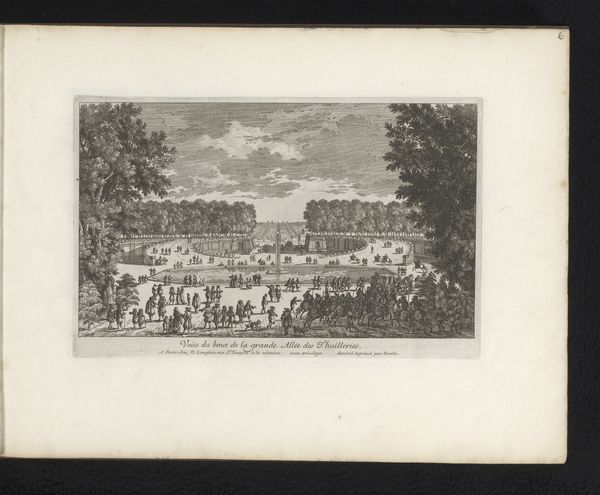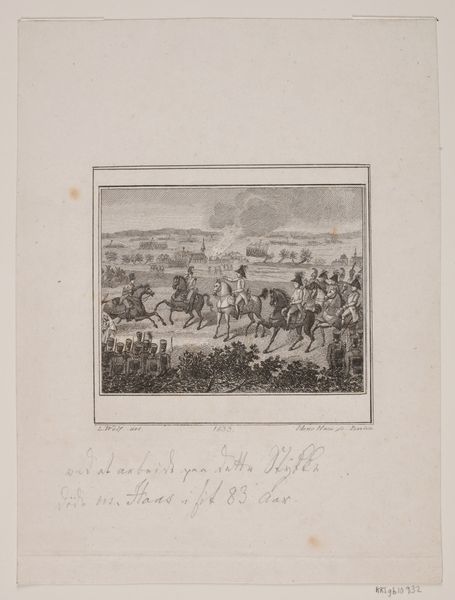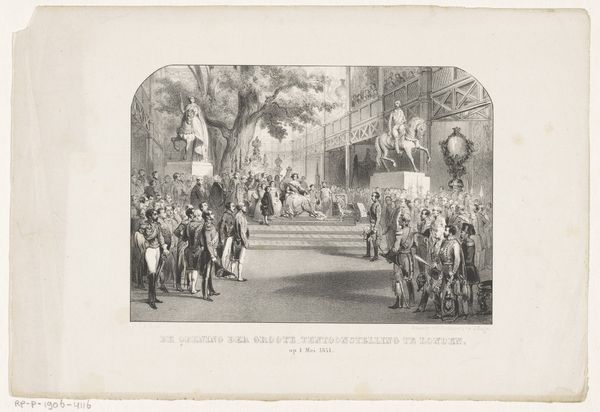
Afscheid van Willem V en echtgenote aan de Buiten Amstel, 1768 1769 - 1773
0:00
0:00
simonfokke
Rijksmuseum
drawing, print, paper, engraving
#
drawing
#
narrative-art
#
dutch-golden-age
# print
#
landscape
#
paper
#
cityscape
#
genre-painting
#
history-painting
#
engraving
Dimensions: height 295 mm, width 404 mm
Copyright: Rijks Museum: Open Domain
Curator: Standing before us is "Afscheid van Willem V en echtgenote aan de Buiten Amstel, 1768", or "Departure of Willem V and Wife on the Outer Amstel, 1768," an engraving made between 1769 and 1773 after a drawing by Simon Fokke. It depicts a moment of departure, of leave-taking, set against an Amsterdam cityscape. Editor: It's bittersweet, don't you think? All the grandeur and ceremony… yet tinged with this underlying sense of melancholy. Like a beautifully staged farewell. The black and white makes it so stark. Curator: Indeed. Fokke’s drawing, translated into an engraving, allows for a detailed look at the material culture of the time: the carriages, the clothing of various social classes, the flags... Consider the printmaking process itself—a means of disseminating this political image widely. What statements about the means of disseminating this image says a lot. Editor: And what a fascinating choice to immortalize a *departure*. Not a victory, not a coronation, but someone leaving. It is quite sad. The trees framing the scene feel like they’re watching a chapter close. Very painterly, in a way. Almost like theater. Curator: The trees are a compositional anchor. It also places importance on labor – the labor involved in the entourage that processes Willem and his wife as they move. Consider the cost, for instance, in materials for clothing for that period, and consider also the symbolism involved with commissioning such works. Editor: It really does get you thinking, doesn't it? About what we choose to remember, what we celebrate, what stories we tell ourselves. I love how it blends personal and political history. This engraving has such a quiet yet compelling aura to it. Curator: Yes, the work offers insight into not just a historical moment, but the social structures, class distinctions, and means of representation of that moment in the Netherlands. Editor: Agreed. A really affecting look into history and, perhaps surprisingly, the fragility of power.
Comments
No comments
Be the first to comment and join the conversation on the ultimate creative platform.
